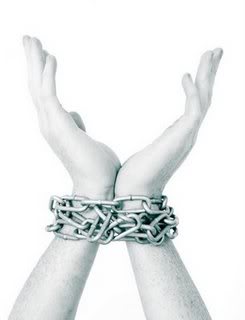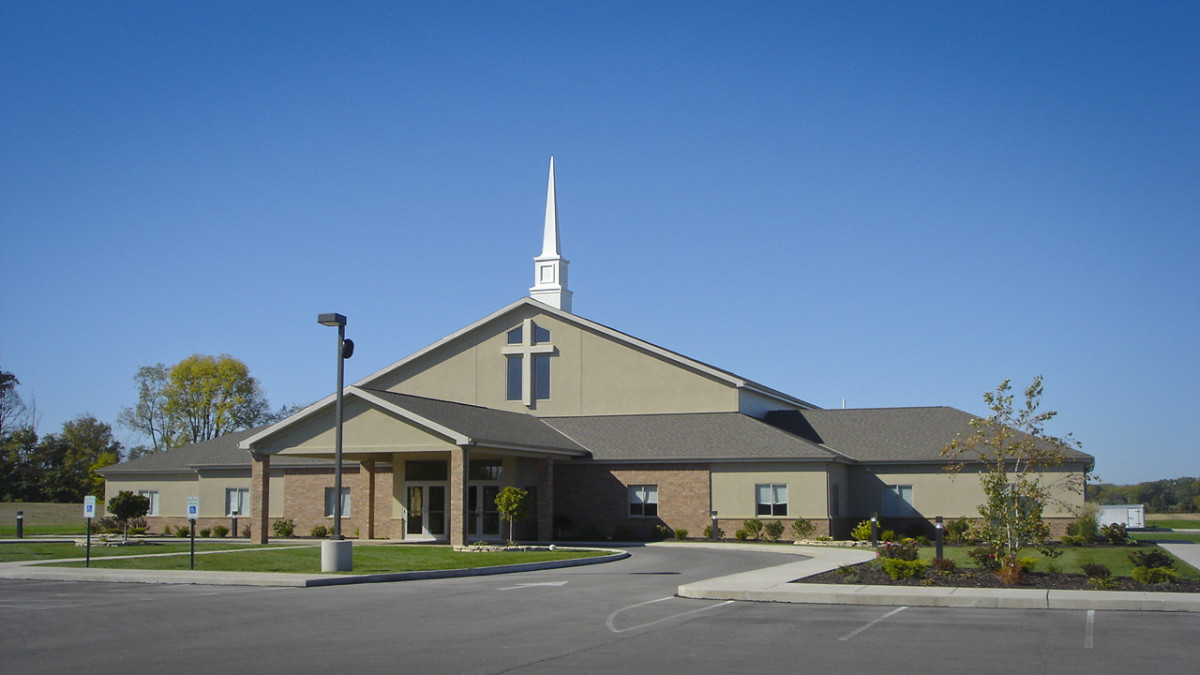Generational Curses: Is there such a thing?


Is there such a thing as a generational curse?
Throughout my Christian walk, I have heard Christian’s use this term when there is a negative pattern passed down from generation to generation in their families. They are believed to be passed down from grandparents to parents and from parents to their offspring’s. Some of these patterns may go back for centuries.
Oftentimes, these families have been afflicted with alcoholism, drug addiction, poverty, sickness, disease, or any continual negative pattern. Some believe that somewhere in their family lineage, there was sin and rebellion against God, and because of it, their family is condemned to live out a curse for several generations.
This belief stems from a few verses in the Old Testament (Ex 20:5; Ex 34:7; Num 14:8; Deut 5:9) and I will admit, for the longest time I also believed that my family was cursed because of rebellion and sin against God thus explaining sickness, alcoholism, divorce, and a rash of other bad things wrong in the family. Let’s see what the Bible says about this.
For the sake of illustration, I will use only a couple of these verses from the KJV. In Exodus 34:6-7, when Moses was making two new tablets where God was to re-write the Ten Commandments, the Bible says:
“And the LORD passed by before him, and proclaimed, The LORD, The LORD God, merciful and gracious, longsuffering, and abundant in goodness and truth, Keeping mercy for thousands, forgiving iniquity and transgression and sin, and that will by no means clear the guilty; visiting the iniquity of the fathers upon the children, and upon the children's children, unto the third and to the fourth generation.”
Also in Lamentations 5:7, the Bible says:
“Our fathers have sinned, and are not; and we have borne their iniquities.”
There we can see where this belief of generational curses in some Christians stems from, but is this still in effect now that we are under a New Covenant? A covenant of grace?
If this curse were still in effect, then according to Exodus 22:18, I should be stoned to death for having practiced witchcraft in the past, as did many of my ancestors. Moreover, my descendants would be punished unto the third and fourth generation because of my rebellion and my sins against God.
Yes, I committed a grievous sin against God. I broke the First Commandment “Thou shalt have no other gods before me.” Sadly, according to the New Testament, I have broken all of the Ten Commandments, and under the old covenant, I deserved to die for having practiced witchcraft. Thankfully, because of what Jesus did for me, I no longer have to die. No one has to die, physically or spiritually. My descendants will not be punished for my sins either.
What Jesus accomplished on the cross is magnanimous. To better understand this, one would have to read the entire Bible, but for now let’s go to a few verses. In these verses, we will also learn the meaning of the word “curse.” In Galatians 3:13-14, the Bible says, “Christ hath redeemed us from the curse of the law, being made a curse for us: for it is written, Cursed is every one that hangeth on a tree: That the blessing of Abraham might come on the Gentiles through Jesus Christ; that we might receive the promise of the Spirit through faith.”
Where it says Jesus redeemed us from the “curse” of the law, it means Jesus saved us from our disobedience of the law, from the rejection and surrender to punishment, and the destruction caused by judgment.
These verses also say Christ was made a curse for us. What does this mean? Paul explains to us in Galatians 3:13 that Christ was made a curse by the manner in which He died. The Jews considered cursed anyone who was hanged from a tree; they were seen as a punishment from God.
We also see the same explanation in Deuteronomy 21:22-23:
“And if a man have committed a sin worthy of death, and he be to be put to death, and thou hang him on a tree: His body shall not remain all night upon the tree, but thou shalt in any wise bury him that day; (for he that is hanged is accursed of God;) that thy land be not defiled, which the LORD thy God giveth thee for an inheritance."
The Hebrew word for accursed is Qelălăh and has several meanings. Vilification and reproach are a couple; it means the opposite of blessing, and it is the lowering to a lesser state.
Therefore, Christ bore our disobedience, and became a curse for us when He hung on the cross. He was considered to be punished, stricken, and afflicted by God when He took upon himself our transgressions (Isa 53:4). During His most agonizing final moments, Jesus was rejected and forsaken, and although He committed no sin, He bore our sins. He became the sacrificial lamb, the atonement for our iniquities.
Sin means death. That is, spiritual death. Romans 6:23 says, “For the wages of sin is death; but the gift of God is eternal life through Jesus Christ our Lord.” Sin enslaves us (Jn 8:34). Jesus paid the price for our sins to set us free and have eternal life through Him (Rom 8:2). Those who accept Christ are no longer a prisoner of sin (Jn 8:36). As Paul stated, sin shall not have dominion over us (Rom 6:14). By dying to sin, we are set free. My recommendation is to read Chapter 6 in Romans. Romans 6 clearly explain we are dead to sin after accepting Christ.
Galatians 5:24 says, "Those who belong to Christ Jesus have crucified the flesh with its passions and desires" (NIV). We are not bound to sin nor are we to be loyal to it. He has cleansed us through and through, and has saved us from spiritual death. It is a precious gift this gift of salvation, and he extends an invitation to anyone who wants to receive it. As a result, if anyone is in Christ, he is a new creation (2 Cor 5:17). Therefore, there is now no condemnation to them, which are in Christ Jesus (Rom 8:1). Because of Jesus, we now have a choice. We do not have to die. We can choose life. If Jesus had not lived a sinless life and died for us on the cross, we would never accomplish what Jesus accomplished no matter how good and obedient we tried to be our entire lives.
As long as we are in covenant with God, we are under His covering and we have everlasting life through Jesus. Furthermore, we do not have to carry the penalty for what our grandparents or our parents did. We are under a New Covenant. We do not have to fast and pray, and go through deliverance ceremonies and ritualistic prayers to cancel out generational curses once we accept Christ in our lives. Jesus took care of that when He took upon himself all of our sins: our past, present, and future sins. However, this does not mean we are now free to sin (Rom 6:1-2). When we sin, we must come to Christ with a repentant heart and confess our sins, and we will be forgiven.
There are no more generational curses in the life of a Christian. Most of the things we see in dysfunctional families are not generational curses but negative behavioral patterns they CHOSE to follow. Some may even call that to be a curse when we pass down negative traits to our children. However, this is just learned behavior. We often become what we learn, but we do have a choice in what we do.
Is it sickness that is prevalent in your family and now you suffer from this? This does not mean it is a generational curse. There were sick people in the days of Jesus and it did not have anything to do with sin or generational curses as the ancient Jews often believed. A good example is found in John 9:1-3 where Jesus encounters a blind man who was blind from birth.
“And as Jesus passed by, he saw a man which was blind from his birth. And his disciples asked him, saying, Master, who did sin, this man, or his parents, that he was born blind? Jesus answered, Neither hath this man sinned, nor his parents: but that the works of God should be made manifest in him.”
Sickness does not automatically mean there is sin somewhere. Therefore, we should not blame our misfortune or our family’s misfortune on the sins of our ancestors. We alone are answerable for our own sins. In Jeremiah 31:29-30, God promises us that the children will no longer pay for the father’s mistakes; however, we should also remain in covenant with Him (Ezekiel 18).
Is there such a thing as generational curses in the life of a Christian, the answer is no. Everyone is responsible for his or her own sins and their rebellion against God.
There are spiritual consequences in our rebellion with God, and it is OUR rebellion, not our ancestors, that is relevant here. On judgment day, everyone shall give an account of himself to God (Rom 14:12), and for this reason, we need to accept responsibility for our own sins and repent.
I pray that after you read this hub, it will bring understanding about what Jesus accomplished on the cross and dispel any superstition revolving around generational curses.
THANK YOU FOR STOPPING BY MY HUB. IF YOU LIKED THIS HUB, PLEASE DON'T FORGET TO VOTE.

©Faithful Daughter









